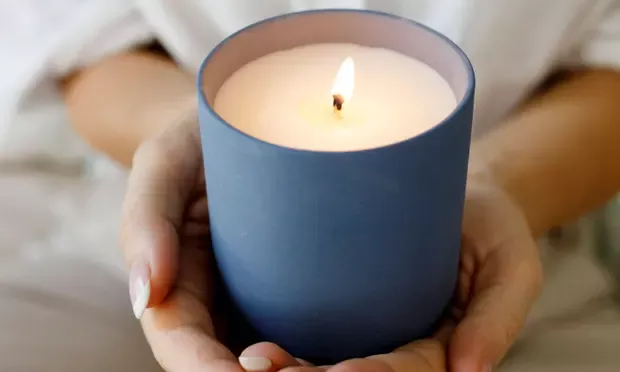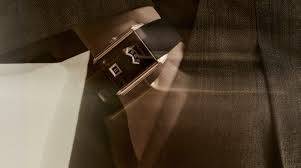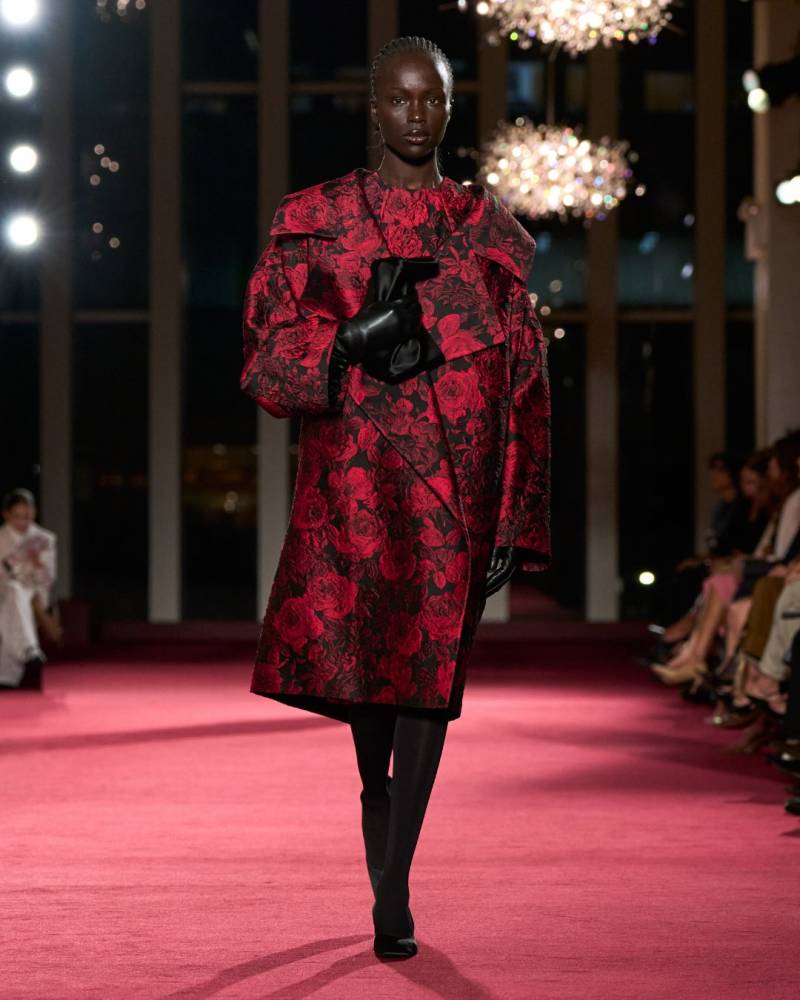Business is big for candle makers with people wanting to recall favourite smells and transform homes with the power of scent
Academic experts in scent say the pandemic has placed a renewed focus on sense of smell. Photograph: Westend61 GmbH/Alamy
When Niko Dafkos first set up his scented candle-making business, nervous customers would worry their sense of smell wasn’t good enough or were unsure about what they liked. Fast forward eight years, including the scented-candle mania that gripped the UK during lockdown, and he is continually surprised by how much his customers know.
The change he’s observed in visitors to his Earl of East stores in London “has been incredible to witness”, he said. “[Previously] those who didn’t work with fragrance in a professional setting felt like they couldn’t participate in a conversation around scent. It’s similar to the democratisation of the kitchen and cooking a decade or so ago.”
Scented candles are now big business. Figures from the data analysts Kantar show that between March 2021 and 2022, UK consumers spent £418m on scented candles. John Lewis reported that sales have risen by 5% each year since 2020, when they jumped by 12%, with particular recent interest on cheaper ranges, including own-brand candles.
Jo Malone, the perfumer whose name has become synonymous with fragrance, said the main change she had observed over her years in the industry was that good quality scented candles had become much more affordable. “When scented candles were first around they were high-end luxury. It’s amazing now: you go into supermarkets or anywhere and you can find a scented candle from £5 up,” she said.
Malone, who has collaborated with Zara on a £15 candle range, said although budget candles didn’t use the most expensive essential oils, many cheaper ranges drew on the same skill and expertise as their pricier counterparts. “When I work for Zara, I don’t change the way I work … If you blind-burned [cheaper scented candles] I don’t think you would be able to tell between most of them.”
Sign up to First Edition, our free daily newsletter – every weekday morning at 7am BST
She has also seen tastes shift away from traditional British preferences for citrussy or floral notes towards deeper, woodier fragrances that are more popular in the Middle East: for instance oud, cedarwood or leather. And among a younger clientele the focus on the environment has increased demand for green, nature-inspired scents, she said.
The wide range of scents available reflects the scale of demand, which was supercharged during the pandemic. “People were looking at their four walls and thinking: ‘This is my home, my schoolroom, my gym, how can I change it?’ The power of scent is that it’s the gatekeeper of memories, it takes you somewhere you remember. Scented candles transform that space into something different,” Malone said.
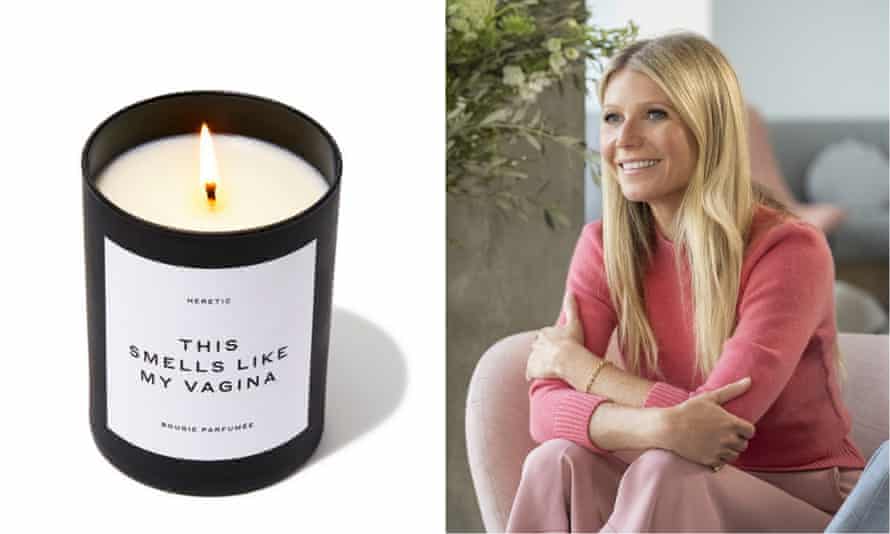
Gwyneth Paltrow caused a stir when her company Goop produced a £75 candle named This Smells Like My Vagina. Composite: Goop & Netflix
Academic experts in scent said the pandemic had placed a renewed focus on sense of smell due to anosmia from Covid and airborne transmission, combined with the influence on modern culture of ideas from medieval and Victorian medicine around the healing properties of fresh or scented air: for example, burning rosemary to ward off the plague or being prescribed seaside air.
Cecilia Bembibre, a researcher specialising in the heritage of smells at UCL, said that scented candles also reminded people of places they loved but couldn’t access. Traditionally, home fragrance has sought to bring the outside in – for instance, dried flower potpourri in the 18th century – to conjure exotic places or remind us of comforting memories, exemplified in the popularity of library-scented candles. “We’re trying to create our own imaginary trip, we’re redefining our home invisibly,” she said.
Scent is known to be strongly associated with memory, which explains the popularity of candles scented like British seaside destinations, favourite foods, or the office or the gym during lockdown. “Smell has a very powerful ability to evoke our memories or our connections to other people and places, whether that’s relatives or a holiday we have fond memories of, particularly places in our childhood,” said William Tullett, an associate professor in sensory history at Anglia Ruskin University.

DIY pedicures, sofa picnics – and mango in the bath: 20 cheap lifestyle hacks to try this summer
Lizzie Ostrom, a perfume expert, said the popularity of scented candles tapped into a wider interest in home fragrance. Demand has also grown for other delivery methods, for instance incense (Pinterest data shows an 80% rise in the past month for incense burner searches) or reed diffusers. Equally, multi-sensory experiences are becoming more popular, including in theatres and museums, while hotels and bars will pay for scent-scaping consultants.
She said: “Rather than smell being pleasantly in the background, we know now it’s doing quite profound things to our brains that are just as important. In a way, the sense of smell has had a PR job, accelerated by Covid, so you don’t have to say, ‘it’s interesting we should think about it’. Many people now go ‘I get it’.”
Some of the weirdest scented candles
The office
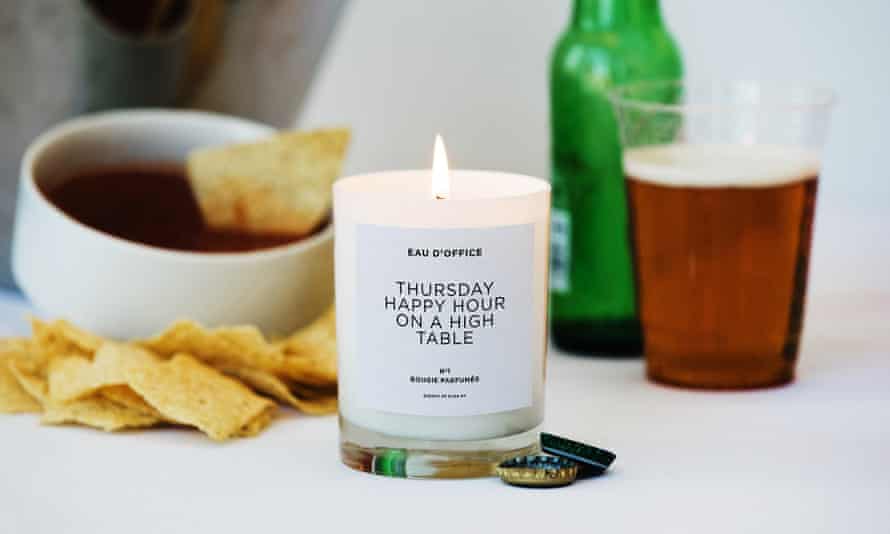
Eau d’Office’s Thursday Happy Hour on a High Table candle. Photograph: Eau D’Office
If you found yourself craving a “warm 96-page deck left on the printer” and the “afternoon rush at the coffee bar” during lockdown, then you’re not alone: these are two of the most popular scents produced by Eau d’Office. Other delightful odours to encourage you back into the office after the pandemic include “room 12F.1 after a six-hour workshop” and “breakfast leftovers in edit suite 1”.
Vagina
Before the pandemic, Gwyneth Paltrow caused a stir when her wellness company Goop produced a £75 candle named This Smells Like My Vagina. It’s described as a “funny, gorgeous, sexy, and beautifully unexpected scent” and perhaps somewhat generously seeks to capture female anatomy through a blend of geranium, citrussy bergamot, cedar, Damask rose and ambrette seed.
British seaside
If you’re pining for summers in Great Yarmouth, you can now fill your living room with “essence of suntan lotion”, the fragrance of fish and the fresh scent of sea air. The candles are made by Parkdean resorts, which runs holiday parks across the UK, and includes Scarborough, featuring cockle concentrate and ice-cream elixir, and a candle made up of “earthy aromas of local sand”, which evokes Clacton-on-Sea.
Weird food
Any food you can think of, there’s a scented candle for that. The Stinky Candle Co lives up to its name by producing pizza, curry and gherkin-scented candles. For more serious candle fans, tomato-based scents are surprisingly popular at the moment – the luxury fashion retailer Net-a-Porter says these count among its top sellers.
